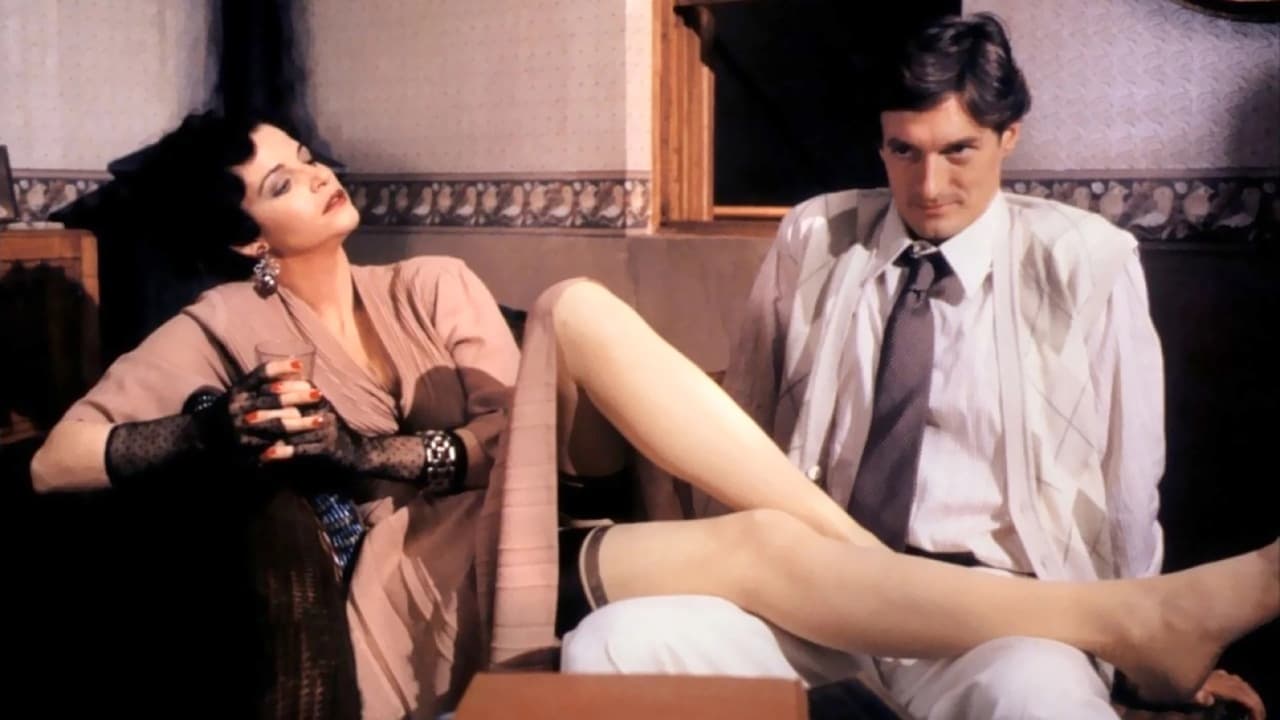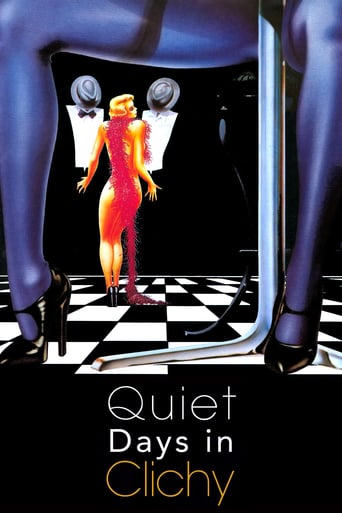

Wonderful character development!
... View MorePlot so thin, it passes unnoticed.
... View MoreAbsolutely amazing
... View MoreThere is, somehow, an interesting story here, as well as some good acting. There are also some good scenes
... View MoreThis film is to be avoided by anyone wanting to see something worthwhile. If you are a Chabrol aficionado, well, you might just want to quench your thirst on completing your knowledge of his filmography. Chabrol totally misses the point of the novel. Although he interestingly casts the two main characters as somewhat resembling the original Jens Thorsen film main actors. Nothing of the situationist atmosphere of the book and the 1970s film is preserved. The plot is located in the 20ies/30ies with some nonsense political threads thrown in. The 70ies film apparently was reshaped to the 50ies/60ies (without much mention, but the street scenes would suggest so) - and that actually made more sense. Chabrol invents two threads of a night club and the dying Miller which just don't make it and turns the film into a tedious experience of wannabe cinematographic art. Having re-written the plot does not help anything in this flick - it finally just goes nowhere at all. Waste of money and waste of time. Take to the UK original version of Jens Thorsen in any case, even if this is VERY bleak and 70ies-ish. If I were Henry Miller, I would have shot Chabrol for this. Another thing I cannot understand is the rating. NOTHING in this film justifies and 16 or even 18-up rating. The French rated it at 12+ which is about what it deserves. *grumble*
... View MoreHenry Miller, the famous nefarious American writer in the twilight years remembers his youth spent in Paris at the dawn of the thirties. A life of debauchery guided by the search for rapture and intense pleasure of the senses through sex, food and literature (he was a profound admirer of Marcel Proust).Amid a bushy and patchy filmography, Claude Chabrol admits liking this movie very much. That this movie makes him feel good is a mystery to me for it showcases none interest. His lack of input in his film, even his absence in the directing are blatant. He shot in a glib way an amorphous biopic to which one doesn't succeed in getting interested beyond the first ten minutes. The characters (Henry "Joey" Miller, Alfred "Carl" Perlès, Colette Ducarouge) have little depth and thickness and their acting mainly consist in wandering from brothel to brothel, from restaurant to restaurant (as Chabrol's inclination for gastronomy has it) and from flat to apartment. Probably to obey to the famous Latin expression "Carpe Diem". The action is sluggish and it's nearly a feat that the filmmaker could stretch his film for two hours with such a thin, stale, repetitive screenplay. It's all the more infuriating as the scenario doesn't live up to some heaven-sent opportunities. The ones through which one could have remembered Chabrol's trademark like unearth the hateful flaws of a posh bourgeoisie. But alas, Chabrol contented himself to skim over this point. Bereft of this asset which might have justify the vision of this film and of rigor, Chabrol installs the audience in a deep torpor and one stays out of this derivative picture of the Paris during the Roaring Twenties.The cast is totally undistinguished, a far cry from Chabrol's great family like Jean-Claude Brialy, Michel Bouquet, Jean Poiret or Isabelle Huppert. Yes, the luminary Stéphane Audran is part of the cast but she's completely wasted in a role unworthy of her skills. Anna Galiena is also included in the cast but she will be given the chance to shine the same year with Patrice Leconte's dreamy "Mari De La Coiffeuse".Chabrol beat his dead horse with this mediocre commissioned film which is now in limbo. Anyway, 1990 was a dreadful vintage for him with these "quiet days in Clichy" and also with another fiasco the same year: "Dr. M".
... View MoreAs a big fan of Henry Miller, I must vehemently trash this movie. The director misses the point of the novel completely, and instead INVENTS a tediously pretentious story around the most basic elements of Miller's book. It's an embarrassment, really. Miller and Carl's poverty is such a factor in the book, yet the movie's setting is extravagant and overblown. I had thought that the 1970 version was a poor facsimilie, but I see that that film at least attempted to capture the down-and-out feel of the book, the crudeness of Miller's language in that particular telling, and made some effort to follow the plot of the book. Andrew McCarthy is a snivelling newt with no charisma. McCarthy as Miller? I was cringing the entire time. I couldn't even bear to fast-forward the second half of this version. Dear god, avoid this waste of everyone's time. Why did the director even bother?
... View MoreDifferent from many other Chabrol movies that follow "Hitchock-like" patterns, _Jours tranquilles à Clichy_ relates the days a young American writer (Henry Miller) spent in the Gay Paris of the early thirties, with his polish-descent friend and their young Colette, a 14 years old-ish girl with whom they both fall in love. The story in itself doesn't send us from a surprising even to another but slowly lifts the curtain over the prostitution, pornography, libertinage and partying that seemed to oppose Paris so much to New York, in the eyes of Miller, searching for a change from the dull like he lead before. The story is a quest for Proust and his lost time, a quest for a new life, for thrills, for truth in forgetting oneself...
... View More